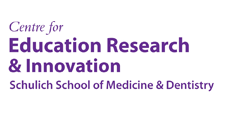Event Title
Towards an Enriched Understanding of Learners’ Responses to Feedback: The Potential and Limitations of Regulatory Focus Theory
Start Date
5-10-2011 10:45 AM
End Date
5-10-2011 11:45 AM
Abstract
Background: Regulatory focus theory posits two self‐regulation systems underlying human motivation: promotion focus, concerned with aspirations and accomplishments, and prevention focus, concerned with obligations and responsibilities. Regulatory focus theory predicts that positive feedback is motivating under promotion focus while negative feedback is motivating under prevention focus, and in experimental settings these predictions seem accurate.1 We aimed to explore this link between regulatory focus theory and feedback response using data collected in a naturalistic setting.
Methods: In a constructivist grounded theory study, we interviewed 22 early‐career academic physicians about experiences they perceived as influential in their learning, deriving a model of clinical learning in which feedback emerged as one of a number of important learning cues. To better understand how feedback becomes (or fails to become) influential, we used the theoretical framework of regulatory focus to re‐examine and re‐code all instances where the experience of receiving and responding to feedback was described.
Results: Feedback could be influential or non‐influential, regardless of its sign (positive or negative). In circumstances where the individual’s regulatory focus was readily determined, such as choosing a career (promotion) or preparing for a high‐stakes examination (prevention), the apparent influence of feedback was consistent with the prediction of regulatory focus theory. However, we encountered many challenges in applying regulatory focus theory to real scenarios, including the frequent presence of a mixed regulatory focus, the potential for regulatory focus to change over time, and the competing influence of other factors, such as feedback’s credibility.
Conclusions: Regulatory focus theory offers a useful, if limited, construct for understanding learners’ responses to feedback in the clinical setting. The insights and predictions it offers must be considered in light of the motivational complexity of clinical learning tasks and of other factors which influence feedback’s impact.
1. Kluger AN, Van Dijk D. Feedback, the various tasks of the doctor, and the feedforward alternative. Med Educ 2010;44:1166‐1174.
This document is currently not available here.
Towards an Enriched Understanding of Learners’ Responses to Feedback: The Potential and Limitations of Regulatory Focus Theory
Background: Regulatory focus theory posits two self‐regulation systems underlying human motivation: promotion focus, concerned with aspirations and accomplishments, and prevention focus, concerned with obligations and responsibilities. Regulatory focus theory predicts that positive feedback is motivating under promotion focus while negative feedback is motivating under prevention focus, and in experimental settings these predictions seem accurate.1 We aimed to explore this link between regulatory focus theory and feedback response using data collected in a naturalistic setting.
Methods: In a constructivist grounded theory study, we interviewed 22 early‐career academic physicians about experiences they perceived as influential in their learning, deriving a model of clinical learning in which feedback emerged as one of a number of important learning cues. To better understand how feedback becomes (or fails to become) influential, we used the theoretical framework of regulatory focus to re‐examine and re‐code all instances where the experience of receiving and responding to feedback was described.
Results: Feedback could be influential or non‐influential, regardless of its sign (positive or negative). In circumstances where the individual’s regulatory focus was readily determined, such as choosing a career (promotion) or preparing for a high‐stakes examination (prevention), the apparent influence of feedback was consistent with the prediction of regulatory focus theory. However, we encountered many challenges in applying regulatory focus theory to real scenarios, including the frequent presence of a mixed regulatory focus, the potential for regulatory focus to change over time, and the competing influence of other factors, such as feedback’s credibility.
Conclusions: Regulatory focus theory offers a useful, if limited, construct for understanding learners’ responses to feedback in the clinical setting. The insights and predictions it offers must be considered in light of the motivational complexity of clinical learning tasks and of other factors which influence feedback’s impact.
1. Kluger AN, Van Dijk D. Feedback, the various tasks of the doctor, and the feedforward alternative. Med Educ 2010;44:1166‐1174.
